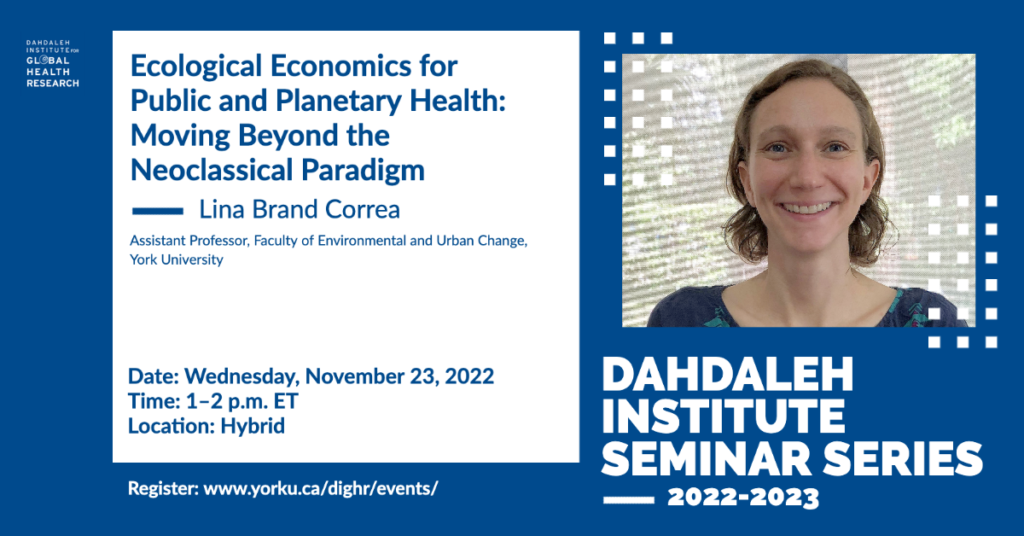Ecological Economics for Public and Planetary Health: Moving Beyond the Neoclassical Paradigm, with Lina Brand Correa
There are multiple ways in which our economic system influences the health of both people and planet. We know this intuitively and empirically, and therefore public and planetary health scholars often discuss ways in which we can develop an economic system that benefits people and planet. However, these discussions are often developed within the neoclassical economics paradigm, and direct engagement with heterodox economic schools of thought has been lacking.
This seminar presentation aims to highlight the contributions that one such heterodox economics school of thought (ecological economics) can make to the fields of public and planetary health, making a contrast with what the neoclassical economics orthodoxy proposes.
Ecological economics offers an opportunity to make the transition to an economic system that is designed to promote human and planetary health from the outset, rather than one where social and environmental externalities must be constantly corrected after the fact. Important ideas from ecological economics include the use of a multidimensional framework to evaluate economic and social performance, the prioritization of wellbeing and environmental goals in decision making, policy design and evaluation that take complex relationships into account, and the role of provisioning systems (the physical and social systems that link resource use and social outcomes). Ecological economics also proposes possible interventions at the national scale that could promote public health and that align with the prioritization of social and ecological objectives, including universal basic income or services and sovereign money creation.

Speaker profile
Lina Brand Correa is an assistant professor in the Faculty of Environmental and Urban Change at York University in Toronto. She completed her PhD ("Following the ‘golden thread’: Exploring the energy dependency of economies and human well-being") at the University of Leeds, following an MSc in ecological economics at the University of Edinburgh. Her research interests include the impact of energy systems on climate change, energy return on investment, energy (service) requirements for the satisfaction of human needs, energy poverty, and the impact of provisioning systems on wellbeing.
Register below and join us on Wednesday, November 23, at 1 p.m.
RSVP
Registration for this event has closed.
Thank you for your interest in this seminar.
Please find the recap and recording here.

